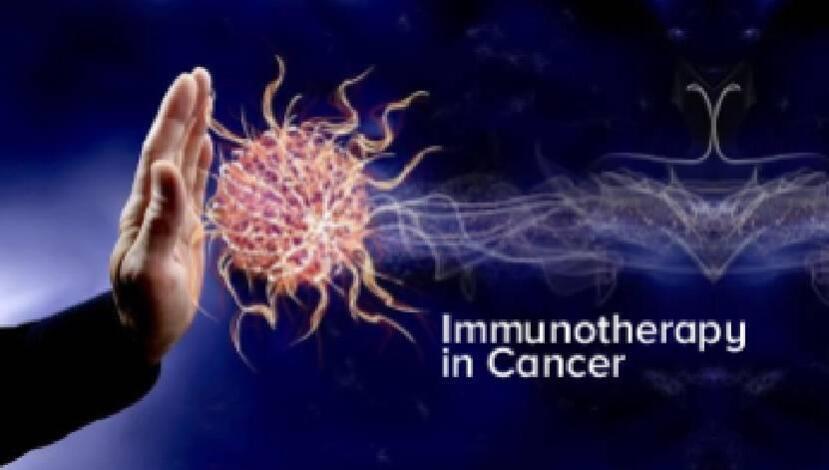
Expert Insights
Immunotherapy: Enhancing Advancement In Cancer Care and Treatment
Immunotherapy is a type of cancer treatment that utilizes the body's
own immune system to combat cancer cells. It works by either boosting the
immune system's natural ability to fight cancer or by providing it with new
tools to target and destroy cancer cells. Unlike traditional treatments like
chemotherapy, which directly attack cancer cells, immunotherapy focuses on
enhancing the immune response against the disease. It is also one of the
most transformative advancements in cancer care in recent decades, yet it
works only 20% to 40% of the time.
The human immune system’s everyday job is to protect our body from
intruders, from allergens and viruses to damaged cells that could become
cancerous. It has special cells that constantly patrol our body for intruders.
When they find a damaged or cancerous cell, they destroy it. That keeps
cancerous tumors from growing and spreading. But cancer is a moving
target. Cancerous cells constantly look for ways to dodge immune system
defenses. Immunotherapy works by training our immune system so it can do
more to find and kill cancer cells and also helping our body produce cancer-
fighting immune cells that effectively locate and destroy cancer cells.
Healthcare providers consider immunotherapy a first-line or initial
treatment for many types of metastatic cancer, or cancer that’s spread. They
may combine immunotherapy with chemotherapy, targeted therapy or other
cancer treatments. Providers use different types of immunotherapy to treat
many kinds of cancer. Each immunotherapy type uses different elements of
your immune system. Weizhou Zhang, Ph.D., a professor in the Department
of Pathology, Immunology and Laboratory Medicine, has studied cancer for
more than two decades, first looking at signaling pathways involved in
cancer progression and later, asking questions like how obesity-related
inflammation affects cancer. He developed the first drug of its kind allowed
to proceed to clinical trial in 2021 by the United States Food and Drug
Administration. That drug used a technology that relies on small molecules
that, instead of just suppressing cancer-promoting proteins, help cells break
them down. That technology is called PROTACs (Proteolysis TArgeting
Chimeras), targeted a protein that fuels the growth of malignant cells and
makes them resist medicine. Together with other professor, they identified
another protein target and developed another PROTAC to attack it. “We
found through laboratory and mouse testing in skin and colorectal cancer
models that this novel compound may be more effective as a single agent
than current immunotherapy treatments”, Zhang said. He also emphasized
that their therapy might be an option for patients whose bodies resist or
don’t respond to immunotherapy. Furthermore, the professor collaborates
with Moffitt Cancer Centre Florida researchers to study how the compound
could enhance immunotherapy for melanoma, the deadliest skin cancer.
People receive immunotherapy through an intravenous (IV) infusion.
They may receive immunotherapy daily, weekly, monthly or in a cycle. With
cyclic immunotherapy, one can take a rest period after treatment. The break
gives our body time to produce healthy cells. Treatment length depends on
cancer type and stage, type of immunotherapy drug, and body’s response to
treatment. Immunotherapy may be an effective treatment for cancers that
haven’t responded to traditional treatment or that have come back after
traditional treatment. However, it doesn’t work on all kinds of cancer and it
may not work for every person who receives treatment. Most
immunotherapy treatments cause side effects. If a healthcare provider
recommends immunotherapy, they’ll explain specific treatment side effects
and ways they’ll help us to manage those side effects. In conclusion,
immunotherapy is a powerful approach to cancer treatment that harnesses
the body's own immune system to fight cancer. While it offers significant
benefits, it's essential to understand the potential side effects and to work
closely with a healthcare professional to determine the most appropriate
treatment plan. As an adage “ Prevention is better than cure”, it is easier,
less costly, and more effective to avoid a problem in the first place than to
fix it after it has occurred. It is really beneficial and unperplexing that we
have to visit and consult regularly any primary physician if our body
manifests enormous noticeable signs and symptoms of cancer at an earliest
time so that we could be able to prevent the worsening stage of this silent
killer disorder. We should always inculcate in our mind that health is our
wealth and being healthy gives a tremendous and luxuriant life.
Neri Torrato Camina Jr, BSN,RN
Florida









